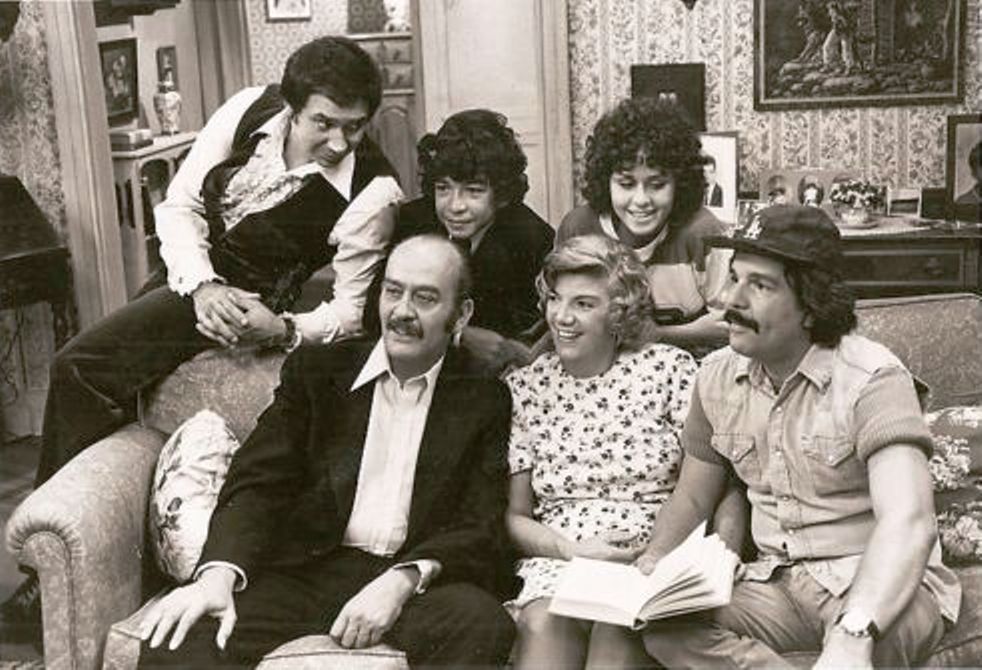Nobody would argue that Jane the Virgin and Ugly Betty aren’t groundbreaking shows, but it’s only fair to recognize that the ground had already been softened up decades earlier by a truly revolutionary, but tragically short-lived Latino family sitcom named Viva Valdez. Airing on ABC from May through September 1976, Viva Valdez followed the fictional East LA Valdez family as they struggled with issues related to immigration, assimilation, and plain-ole everyday working class life.
Starring Rodolfo Hoyos Jr. and Carmen Zapata, Viva Valdez aired for 12 episodes before its cancellation and brought together an almost exclusively Latino cast for the first time on primetime network television. Hoyos played a hardworking plumber named Luis who, together with his wife Sophia, tended to an energetic flock of three sons and one daughter. Yet, despite ABC earnest efforts, and the success of NBCs Latino-led smash hit Chico and the Man, Viva Valdez just could muster the ratings and the plug was pulled at the close of its first season.
While mainstream US audiences may not have been ready for a show centered so squarely on a Mexican-American family, there were undoubtedly other factors at play in Viva Valdez’s demise. In fact, Zapata herself chocks up the show’s failure precisely to its lack of cultural sensitivity. According to the book Short-Lived Television Series, 1948-1978, the Mexican-Argentine actress was convinced the show would be a hit, but was disappointed in the writing. “We had writers coming out of the Catskills in New York,” she told the book’s author Wesley Hyatt. “I definitely think there were missed opportunities and the writing was not what was needed.”
Indeed, the show was created by veteran TV producers Bernard Rothman, Stan Jacobson, and Jack Wohl, while the scripts was supervised by story editors Sol Weinstein and Howard Albrecht. Apparently they didn’t think that was a red flag, and Albrecht himself published some casual reflections on the experience in his memoir See You In Nairobi: How Work Became Fun. “How did five non-Latino writers know about Mexicans living in America?” he mused. “Sol and I wrote stories about a Jewish family. That we did know. The minute our all-Hispanic cast put in a couple of ‘Oy, Dios,’ they turned what we wrote into something that sounded like it came straight from south of the border.”
Well, damn (or should I say ,“Oy, Dios.”) No wonder the whole thing tanked. But it is heartwarming to know that ABC made such a big gamble on representing the Latino experience decades before it was the hip thing to do. Let’s just hope the networks learned their lesson from this unfortunate cautionary tale: to tell Latino stories, you need Latino storytellers. Not a very complicated equation, if you ask us.



